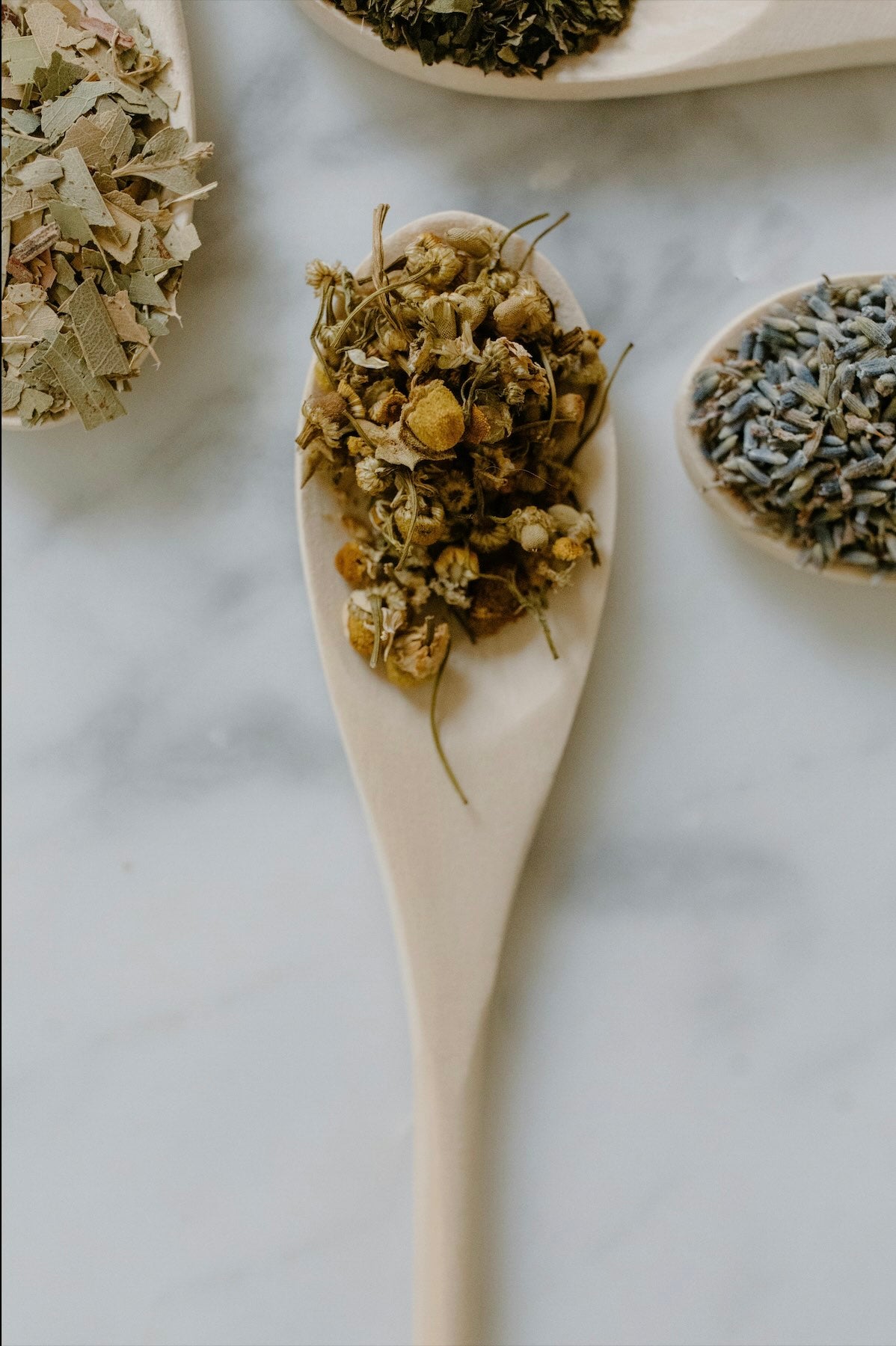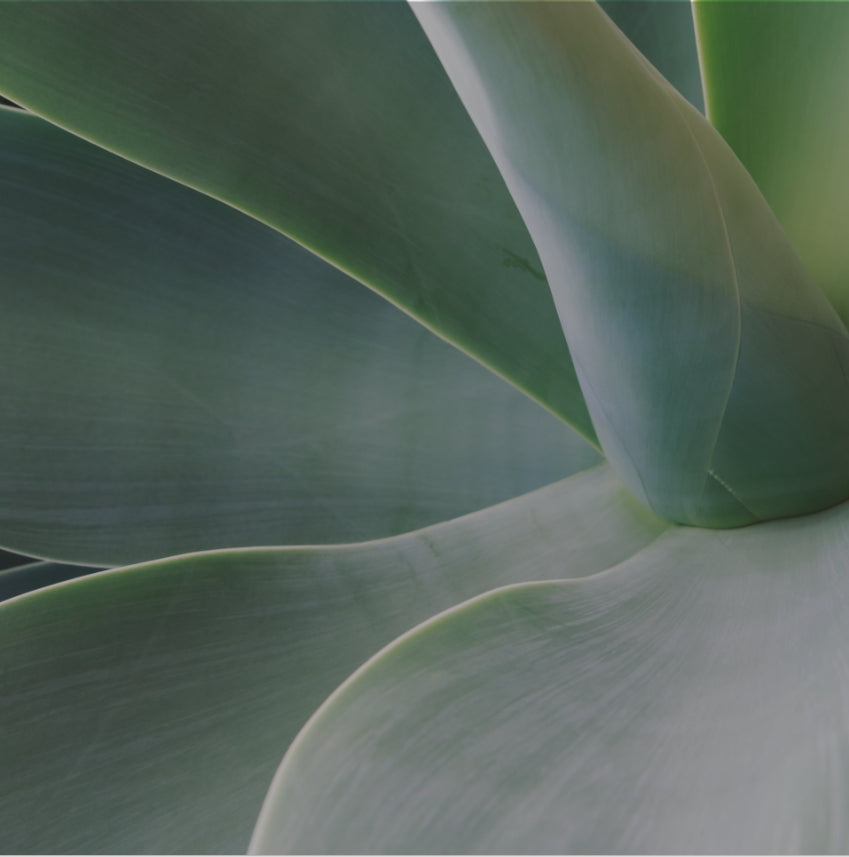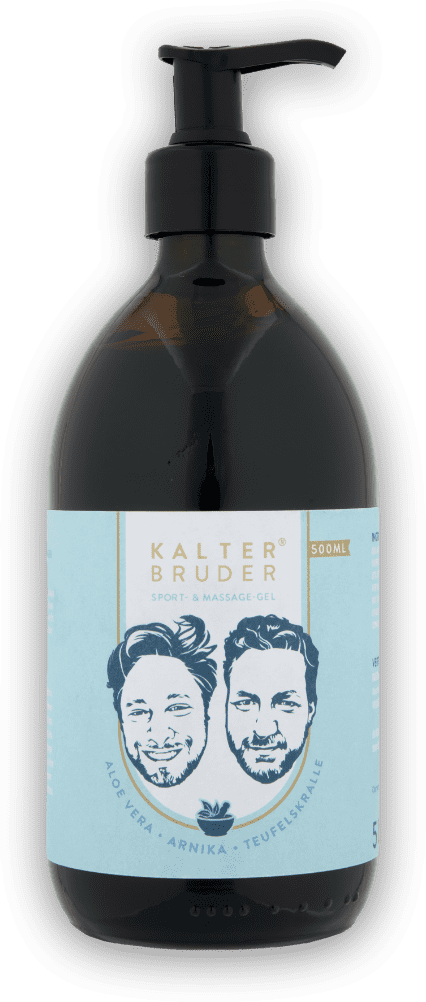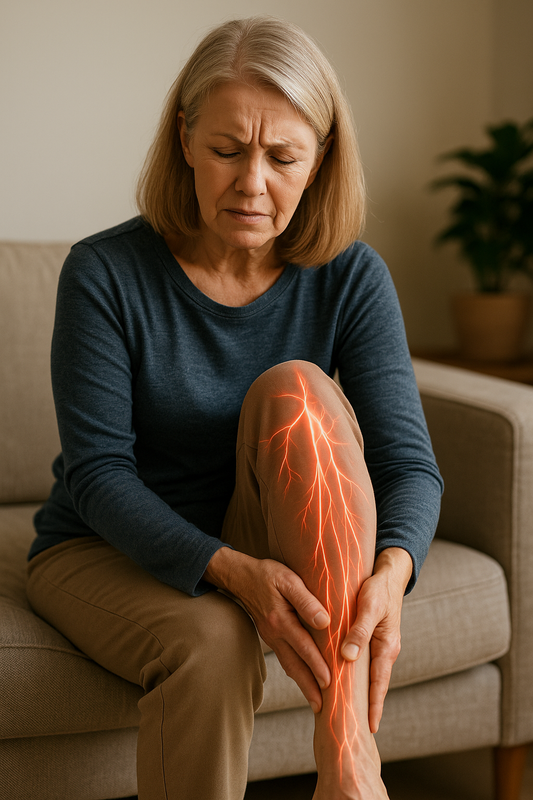Calming medicinal herbs – natural helpers for more relaxation and stress reduction
Do you often feel stressed and overwhelmed? The world around us is becoming more and more hectic. Every day brings new challenges and it seems as if the stress will never end. Daily obligations, professional demands and the multitude of impressions that come at you often leave you feeling constantly under tension. In such moments, nature can teach us an important lesson: find peace and serenity. Medicinal herbs are true treasures of nature that can gently help you regain balance and reduce stress. For example, lavender oil can be particularly helpful if you want to relax in the evening. Or valerian, which is often used to help you sleep better when everyday life is taking its toll. Our ancestors already knew that medicinal plants have a special effect on the body and mind. Even in ancient times, people used plant extracts to calm the nerves and relieve insomnia. Medicinal herbs also play a central role in traditional Chinese and Ayurvedic medicine when it comes to restoring inner balance. Today, as we look for natural alternatives to chemical remedies, calming herbs are coming back into focus. Not only can they be used in a variety of ways - as tea, oil, tincture or bath additive - but they also offer you a gentle, natural way to calm down and relax your mind. In this article, you will learn how different herbs can help calm your body and mind, and how you can easily integrate these herbs into your daily routine.
Why medicinal herbs are so effective – herbal power for your nervous system
You may be wondering why medicinal herbs are so effective when it comes to relaxation and stress relief. The answer lies in their unique chemical composition and their diverse positive effects on the human body. Many medicinal plants contain special active ingredients that act on the central nervous system by promoting GABA activity. GABA (gamma-aminobutyric acid) is a neurotransmitter that promotes relaxation and relieves excessive tension in the brain. GABA is important because it helps calm the nervous system and thus relieves everyday stress, leading to better mental balance and more restful sleep. GABA acts as a kind of brake for the brain by downregulating the activity of nerve cells. Medicinal herbs such as valerian and lavender positively influence this process and help to gently calm without the potential for addiction. In addition, many calming herbs have antioxidant and anti-inflammatory properties that help protect your body against the negative effects of chronic stress.
Stress creates free radicals that can damage cells. Antioxidant herbs such as lemon balm and chamomile neutralize these free radicals and thus help maintain cell health. At the same time, anti-inflammatory medicinal plants such as rosemary and chamomile counteract the tendency to inflammation in the body caused by stress. Studies show that medicinal herbs such as valerian or lavender are similar in their effect to synthetic sedatives - but without the dreaded side effects such as addiction or daytime sleepiness. Another advantage of medicinal herbs is their versatility: you can use them in many different forms, be it as tea, essential oil, tincture or capsules. This means they can be individually tailored to your personal needs.
Signs of Stress – When Your Body Calls for Rest
Stress can manifest itself in many different ways, both physically and mentally. The symptoms often creep up and we don't even notice them at first. However, if you often have headaches, feel tension or have trouble falling asleep and staying asleep, these could be clear signs of stress. Stomach problems, digestive problems or an upset stomach can also indicate excessive stress. Psychologically, stress often manifests itself in irritability, difficulty concentrating or feelings of anxiety. Sometimes it is also seemingly harmless things, such as constant brooding, inner restlessness or the feeling of always being on the go, that indicate overload.
If such symptoms are ignored, stress can develop into a chronic condition and weaken the immune system. Therefore, make sure to recognize the first signs such as sleep problems, irritability or tension early and to take targeted breaks or use relaxation techniques such as herbal teas or breathing exercises - which in turn increases the risk of cardiovascular disease, diabetes and other stress-related diseases. Chronic stress is a significant risk factor for many serious diseases because it leads to permanent activation of the so-called sympathetic nervous system. This means that your body is constantly in "fight or flight" mode and hardly ever reaches the restful "rest and digest" state. It is therefore important to pay attention to these signals and actively look for ways to give your body the rest it desperately needs. Medicinal herbs offer a gentle and natural way to bring your body back into balance and regain inner peace.
Overview of calming herbs – Green helpers for the soul
Nature offers us a variety of medicinal herbs that can help us relax. Below we present some of the most effective calming herbs that have been used successfully to combat stress for centuries:
-
Valerian : Known for its calming effect on the nervous system. Valerian is particularly good for sleeping problems and difficulty falling asleep. Its roots contain valerenic acids, which have a calming effect and can improve sleep quality. Many people value valerian because it also offers quick but gentle relief for nervousness.
-
Lavender : Lavender has a relaxing effect and relieves inner restlessness. It is particularly popular because it can be used in many ways as an oil, tea or bath additive. The scent of lavender alone can have a calming effect on the central nervous system and brighten the mood.
-
Lemon balm : Ideal for nervous tension and stomach problems. Lemon balm, also known as lemon balm, has a pleasantly mild taste, which makes it suitable for children. It not only helps with nervous conditions, but also has a slightly antispasmodic effect, which is beneficial for stomach and intestinal problems.
-
Chamomile : A gentle stress reliever that also has anti-inflammatory effects. Often used for digestive problems and sleep disorders, chamomile is known for its balancing effect. It not only calms the mind, but also the stomach.
-
Passionflower : Passionflower relieves inner restlessness and sleep problems. It is also helpful for mild anxiety and has a calming effect on the central nervous system. People who suffer from nighttime brooding can particularly benefit from passionflower.
-
Hops : Traditionally used to treat sleep disorders. Hops have a relaxing effect and help you fall asleep, especially when sleep problems are due to nervousness. Hops are often used in combination with valerian to achieve a synergistic effect.
-
St. John's wort : St. John's wort has a mood-enhancing and calming effect. It is often used for mild to moderate depressive moods. However, it can increase sensitivity to light, so caution should be taken when exposed to intense sunlight. St. John's wort usually takes several weeks to take full effect, but its effects are long-lasting.
-
Lemongrass : Lemongrass has a refreshing taste and a calming effect. It is particularly helpful for headaches and tension. Lemongrass is also often used as an essential oil to scent rooms to create a relaxed atmosphere.
-
Peppermint : Peppermint clears the mind, relieves headaches and relaxes. It has a cooling effect and is particularly good for tension headaches and for refreshment on hot days. Peppermint tea is a real classic for clearing your head.
-
Linden blossoms : Linden blossoms promote calm and relaxation, especially when you have a cold or are feeling restless. Linden blossom tea has a warming and balancing effect and helps to relax the body, especially in the cold season.
-
Rosemary : Rosemary promotes circulation and relaxes muscles, especially when you are tired. It has a stimulating yet calming effect that helps to stimulate circulation while calming the mind. A rosemary bath is ideal after a busy day.
-
Liquorice : Liquorice has a calming and stress-reducing effect, but should not be consumed in large quantities over the long term as it can increase blood pressure. It strengthens the immune system and has a pleasant sweet note that makes it particularly popular.
To give you an even better overview of the diverse uses of medicinal herbs, we have summarized the most important herbs here in a clear table. The table offers you a quick reference so that you can find the right medicinal herbs at a glance.
Table: Calming herbs and their use
| herb | Effect | Application | special features |
|---|---|---|---|
| valerian | calming the nervous system | tea, tincture, pillow | Particularly helpful for sleep problems |
| lavender | Relieves restlessness | oil, tea, bath additive | Versatile applications possible |
| lemon balm | Relaxes nervous complaints | tea, bath additive | Mild taste, also suitable for children |
| chamomile | mild stress reliever | tea, steam bath, lotion | Anti-inflammatory and skin-soothing |
| passionflower | Relieves inner restlessness | tea, capsules, tincture | Supports mild anxiety |
| hop | Promotes sleep and relaxation | tea, bath additive, pillow | Traditionally used to treat sleep disorders |
| St. John's wort | Has a mood-enhancing effect | tea, capsules, oil | May cause photosensitivity |
| lemongrass | Calms the nervous system | tea, essential oil | Refreshing taste, also helpful for headaches |
| rosemary | Promotes blood circulation and relaxes muscles | oil, bath, tea | Calming and stimulating at the same time for exhaustion |
| peppermint | Relaxes from stress and headaches | tea, oil, steam bath | Cools and clears the mind |
| linden blossoms | Promote rest and relaxation | tea, steam bath | Traditionally used for colds and inner restlessness |
| licorice | Has a calming and stress-relieving effect | tea, extract | Mild taste, keep an eye on blood pressure with long-term consumption |
How to integrate calming herbs into your everyday life – gentle rituals for more serenity
The calming effect of medicinal herbs can be integrated into everyday life in many different ways. Small rituals can help you find more peace and relaxation and leave the stress of everyday life behind you. How about an evening tea ceremony, for example? Make a conscious effort to take time to enjoy a cup of valerian or lemon balm tea. Sit in a comfortable place, turn off all distracting devices and concentrate only on the taste and warm feeling of the tea. Essential oils are also excellent for using the calming effect of medicinal herbs. Massages with lavender oil or a few drops in an aroma lamp can create a pleasant atmosphere. The scent of lavender has a direct effect on the limbic system, the part of the brain responsible for emotions, and helps to reduce stress.
A warm bath with lemon balm or hops infusions also has a calming effect on the body. Such a herbal bath relaxes the muscles, promotes blood circulation and gives the mind the opportunity to switch off. Simply add a few drops of essential oil or a decoction of dried herbs to the bath water and enjoy the soothing effect. For better sleep quality, you can put a small herbal pillow with lavender and valerian in your bed. The scent supports relaxation and helps you to fall asleep better. Herbal pillows are easy to make yourself and can be individually filled with your favorite herbs.
Another simple ritual is rubbing peppermint essential oil on your temples when you have a headache or are feeling tense. Peppermint has a cooling and invigorating effect that relieves tension and refreshes the mind. Try a rosemary steam bath for your feet. Rosemary stimulates circulation and provides a pleasant, warm feeling that can work wonders, especially after a long day. The goal is to consciously incorporate such rituals into your everyday life in order to create small oases of calm that help you reduce stress.
Avoid mistakes – What you should know
Even though medicinal herbs offer a natural and gentle way to reduce stress, there are still a few things to consider. Too high a dosage can often have the opposite effect - "more" is not always "better". It is particularly important to pay attention to interactions with medications. Some herbs, such as St. John's wort, can affect the effect of certain medications, such as antidepressants or blood thinners. Therefore, always pay attention to the quality of the products and prefer to use tested organic herbs to ensure that they do not contain any harmful residues such as pesticides.
Not every herb is equally well tolerated by everyone, so you should always consult a doctor or alternative practitioner if you are unsure. People with certain illnesses, such as high blood pressure or diabetes, should be particularly careful and make sure that the herbs used do not have a negative impact on their health. If you are using herbs for the first time, start with small amounts and observe how your body reacts. This way you can identify and avoid possible intolerances early on.
Recipes with calming herbs – DIY relaxation
If you like to be creative, you can also make your own little relaxation aids with calming medicinal herbs. How about a homemade lavender and lemon balm tea for evening rest, for example? Simply pour hot water over a teaspoon of dried lavender flowers and lemon balm leaves and let it steep for 10 minutes. The pleasant scent and mild taste create a relaxed atmosphere. Or a relaxing herbal bath with valerian and hops that brings soothing calm in the evening? You can make a decoction of dried valerian roots and hop cones and add this to the bath water. The warm water opens the pores of the skin so that the calming active ingredients can be absorbed directly.
A rosemary steam bath is ideal for tired muscles as it promotes blood circulation and soothes at the same time. Simply put a handful of fresh rosemary in a bowl, pour hot water over it and hold your face over it. The steam bath is particularly beneficial if you are feeling tense or have a headache. You can also easily make your own herbal pillow: take a small cotton bag and fill it with dried lavender, valerian and lemon balm. You can put the pillow next to your pillow to enjoy the calming scents during the night.
Another way to creatively use medicinal herbs is to make a calming body oil. Mix a few drops of lavender oil with a neutral carrier oil such as almond or jojoba oil and gently massage your shoulders and neck area. This can help to relieve muscle tension and calm the mind.
Conclusion – The tranquility of nature for your everyday life
Medicinal herbs are wonderful natural helpers that can bring body and mind back into balance. In a hectic world, they are a gentle way to reduce stress and find inner peace again. Whether as a tea, oil, tincture, herbal pillow or bath additive - the variety of medicinal herbs offers the right remedy for every taste and preference. You can easily integrate them into your everyday life to create small islands of relaxation that interrupt the stressful everyday life.
Use the power of nature to integrate small rituals into your everyday life and ensure more relaxation. Treat yourself to the peace you deserve and let yourself be enchanted by the calming effect of medicinal herbs. Even a small daily ritual can help to increase your well-being and let go of the stress of everyday life. Try it out and discover how beneficial and powerful the natural support of medicinal herbs can be. With patience and the right selection of herbs, you can find your personal balance again and do something good for yourself.















